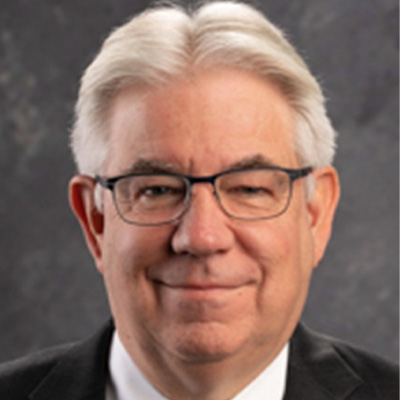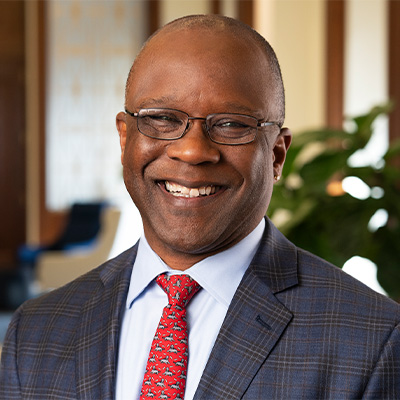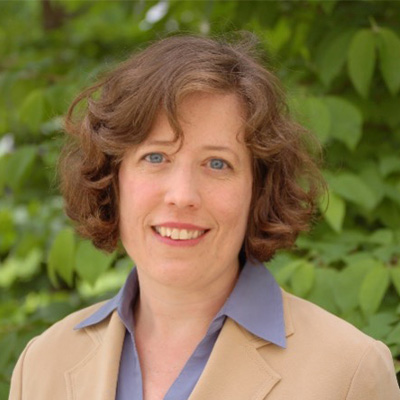Boston College Economics Symposium: Pathways to Innovation, Sustainable Productivity & Equitable Growth
Friday, October 4, 2024 | Conference: 8:15 AM-3:00 PM; Breakfast: 7:30-8:15 AM | Yawkey Athletics Center, Murray Room, 4 th floor | Please register to attend
Please note that this conference will only be available to attend in person and will not be streamed online.

Boston College Economics, in collaboration with experts from the Federal Reserve, the International Monetary Fund, the U.S. Census Bureau, McKinsey Global Institute and the Brookings Institution, is holding a one-day symposium on October 4 on “critical features of the current economic expansion”.
The “post Covid shock” expansion has been distinct from so many perspectives. The resilience of the economy over the period 2020 to 2024 has been impressive: employment, productivity and growth have expanded, and it is reasonable to foresee a sustained expansion into 2025 and beyond.
The symposium comes at the crux of a major turning point of successful efforts across all contributors in the economy to restore stability in prices after a series of major global shocks. The Federal Reserve has taken some initial steps to lower interest rates and ease up on the burden of the high cost of borrowing, which differentially impacts young people, young firms and households with relatively low net worth.
The symposium will offer a unique opportunity to look “under the hood” and examine where we are, where we are going, and how we can continue to underpin positive business dynamics, and support the expansion of opportunities, employment, income, and wealth across the spectrum of society.
The first panel will feature speakers William Wascher and Christopher Nekarda, from the Federal Reserve Board, who will focus on the socioeconomic and labor market benefits of a high-pressure economy, with particular focus on the post Covid shock expansion from the second half of 2020 to the first half of 2024.
The U.S. economy was 50% more concentrated in 2022 than it was 50 years prior. On the second panel, Falk Brauning, from the Federal Reserve Bank of Boston, will discuss how this may have impacted the “pass-through” of cost shocks on prices from supply chain disruptions, such as the disruptions that we saw in the first two years of the Covid cycle. Romain Duval from the International Monetary Fund will discuss how variation in market power, firm age, and financial constraints, in advanced economies, can differentially influence the transmission of monetary policy on firm output across the economy. This is a critical issue when there are sharp wide swings in the stance of monetary policy, such as the period from 2020 to 2024.
Our keynote speaker, William Rodgers from the Federal Reserve Bank of St. Louis, Institute of Economic Equity, will discuss challenges in terms of the income and wealth inequalities that persist, despite the benefits of the remarkable post-Covid expansion explored by panel I.
Panel III includes Maggie Jones from the Census bureau, who will present pathbreaking work done by the census bureau with scholars from Harvard and Brown Universities, which examines the childhood roots of social mobility, and how local economic policies potentially can be crafted to be more effective in addressing the specific needs of neighborhoods. Jeff Fuhrer from the Brookings Institution will share some thought provoking observations on social mobility based on his recent MIT press book “The Myth that Made Us”, and Marc Canal Noguer will present some work done by the McKinsey Global Institute on the puzzle relating to the declining share of labor income in overall income in the economy, and how concerned we should be about this trend in the context of social mobility challenges presented by Jones and Fuhrer.
Schedule and RegistrationFriday, October 4, 2024 | Yawkey Athletics Center, Murray Room, 4th floor | Please register to attend | |
|---|---|
| 7:30-8:15 AM | Continental Breakfast |
| 8:15-8:30 AM | Welcoming Remarks
|
| 8:30-9:30 AM | Panel I: The Socioeconomic and Labor Market Benefits of a ‘High Pressure’ Economy
|
| 9:30-10:00 AM | Q & A Session
|
| 10:00-10:45 AM | Panel II: Rising business concentration: Implications for the transmission of price shocks and monetary policy.
|
| 10:45-11:15 AM | Q & A Session |
| 11:15-11:45 AM | Keynote: Moving forward on rebalancing U.S. wealth inequalities – A View from the Heartland
|
| 11:45-12:15 PM | Q & A Session |
| 12:15-1:15 PM | Lunch Break |
1:30-2:30 PM | Panel III: Social Mobility and the Distribution of Income
|
| 2:30-3:00 PM | Q & A Session |
Speakers

William Wascher
William Wascher is Deputy Director in the Division of Research and Statistics at the Board of Governors of the Federal Reserve System, where he has oversight responsibilities for the assessment of current developments in the U.S. economy and the preparation of economic projections and supporting analyses for the Board of Governors and the Federal Open Market Committee. Bill joined the Board in 1983 and was appointed to the official staff in 2001. He has also served as a senior economist with the President’s Council of Economic Advisers from 1989-1990 and as a visiting economist with the Bank for International Settlements from 1998-1999.
Bill has written extensively on the economics of the minimum wage and is coauthor with David Neumark of the book “Minimum Wages,” which was published by MIT Press in 2008. He has also authored or coauthored numerous additional articles on wage and price determination, productivity, labor force participation, and other labor market issues.

Christopher Nekarda
Christopher Nekarda is Principal Economist in the Labor Markets Division, Division of Research and Statistics at the Board of Governors of the Federal Reserve System.
Christopher has worked in the areas of macroeconomics and labor markets at the Federal Reserve since 2009, and since 2019 he has served in addition as infrastructure manager.
His recent research has focused on policy support for employment and revenue in the Pandemic recession, the cyclical behavior of the price-cost markup, and the dynamics of disappearing routine jobs. Chris graduated with a Ph.D. in economics from the University of California, San Diego, in 2008.

Falk Bräuning
Falk Bräuning is a senior economist and policy advisor in the Federal Reserve Bank of Boston Research Department. His research focuses on financial intermediation, monetary policy, financial stability, and international economics and finance; he is also interested in topics in macroeconomics and econometrics.
Bräuning joined the Boston Fed in 2015 after earning his PhD in economics from the VU University Amsterdam and the Tinbergen Institute. He holds an MPhil in economics from the Tinbergen Institute and an MSc in economics from the University of Mannheim in Germany. He has served as a visiting researcher at the Deutsche Bundesbank as well.

Romain Duval
Romain Duval is an Assistant Director in the European Department, where he leads the Department's research agenda on structural issues and is the IMF Mission Chief for Spain, after seven years in the IMF Research Department. Before joining the Fund, he was the Division Chief for Structural Surveillance at the OECD Economics Department, where he was the editor of the OECD flagship publication Going for Growth and in this role also carried out and supervised policy and research projects. He has published extensively in leading academic and policy-oriented journals

Jeffrey C. Fuhrer
Jeff is an experienced professional economist and researcher with a broad scope of interests in macroeconomics, monetary economics, inflation, U.S. growth and development, income inequality, wealth inequality.
Currently Jeff serves as a nonresident fellow of the Brookings Institution, and is SVP and Foundation Fellow of the Eastern Bank Foundation. Previously, Jeff was a senior fellow at the Kennedy School of Government, Executive Vice President and Senior Policy Advisor at the Federal Reserve Bank of Boston, and Senior Economist at the Board of Governors of the Federal Reserve System.
He also served on the editorial board of the American Economic Review, is the author of The Myth That Made Us: How False Beliefs about Racism and Meritocracy Broke Our Economy (and How to Fix It). Cambridge: MIT Press, September 2023, and has published extensive research on monetary policy and macroeconomics in top economic journals.

William M. Rodgers III
William M. Rodgers III is vice president and director of the Institute for Economic Equity at the Federal Reserve Bank of St. Louis. Before joining the Fed, Rodgers served as professor of public policy and chief economist at the Heldrich Center for Workforce Development at Rutgers University. His areas of expertise include compensation, pay equity, diversity and inclusion, labor market and general economic trends.
Rodgers is an elected member of the National Academy of Social Insurance and served as the Academy’s board chair for the last five years. Rodgers also serves as treasurer for the Institute for Women’s Policy Research. He is a non-resident fellow at The Century Foundation and served on President Obama’s Department of Labor transition team, and as well as chief economist at the U.S. Department of Labor from 2000 to 2001. He served on the National Economic Association Board and is a past president. Rodgers also served on the U.S. Board of United Way Worldwide and currently works on the Board of Trustees of McDaniel College. He served at the Federal Reserve Bank of Atlanta as a visiting scholar and chairs the National Academies of Sciences, Engineering and Medicine’s expert panel to evaluate the quality of compensation data collected from U.S. employers by the Equal Employment Opportunity Commission.
He has published articles in several major journals, and his book, The Handbook on the Economics of Discrimination, was selected by Choice, the review journal of the American Library Association, as an Outstanding Academic Book for 2006.

Maggie R. Jones
Maggie R. Jones received a PhD in Policy Analysis and Management from Cornell University in 2012. She has been a U.S. Census Bureau economist since receiving her PhD, first in the Center for Administrative Records Research and Applications and then in the Center for Economic Studies. Her research focuses primarily on income mobility, income growth, and low-wage workers. Her contributions to public-use statistics on intra- and intergenerational mobility include the Mobility, Opportunity, and Volatility Statistics Project and the Opportunity Atlas. Her research has been published in top economics and demography journals, including the Quarterly Journal of Economics, the Journal of Human Resources, the Journal of Public Economics, Industrial and Labor Relations Review, and Demography.

Marc Canal Noguer
The McKinsey Global Institute (MGI) is the business and economics research arm of the global management consulting firm McKinsey & Company. The division was founded in 1990 in order to develop a deeper understanding of the evolving global economy. Its mission is to provide a fact base to aid decision making on economic and business issues most critical to the world’s companies and leaders.
Marc Canal Noguer leads McKinsey Global Institute’s research on economic and productivity growth, development, and the future of work, and their intersections with demographics, human capital and technology.
Campus Map and Parking
Parking is available at the nearby Beacon Street and Commonwealth Avenue Garages.
Boston College is also accessible via public transportation (MBTA B Line - Boston College).
Boston College strongly encourages conference participants to receive the COVID-19 vaccination before attending events on campus.

